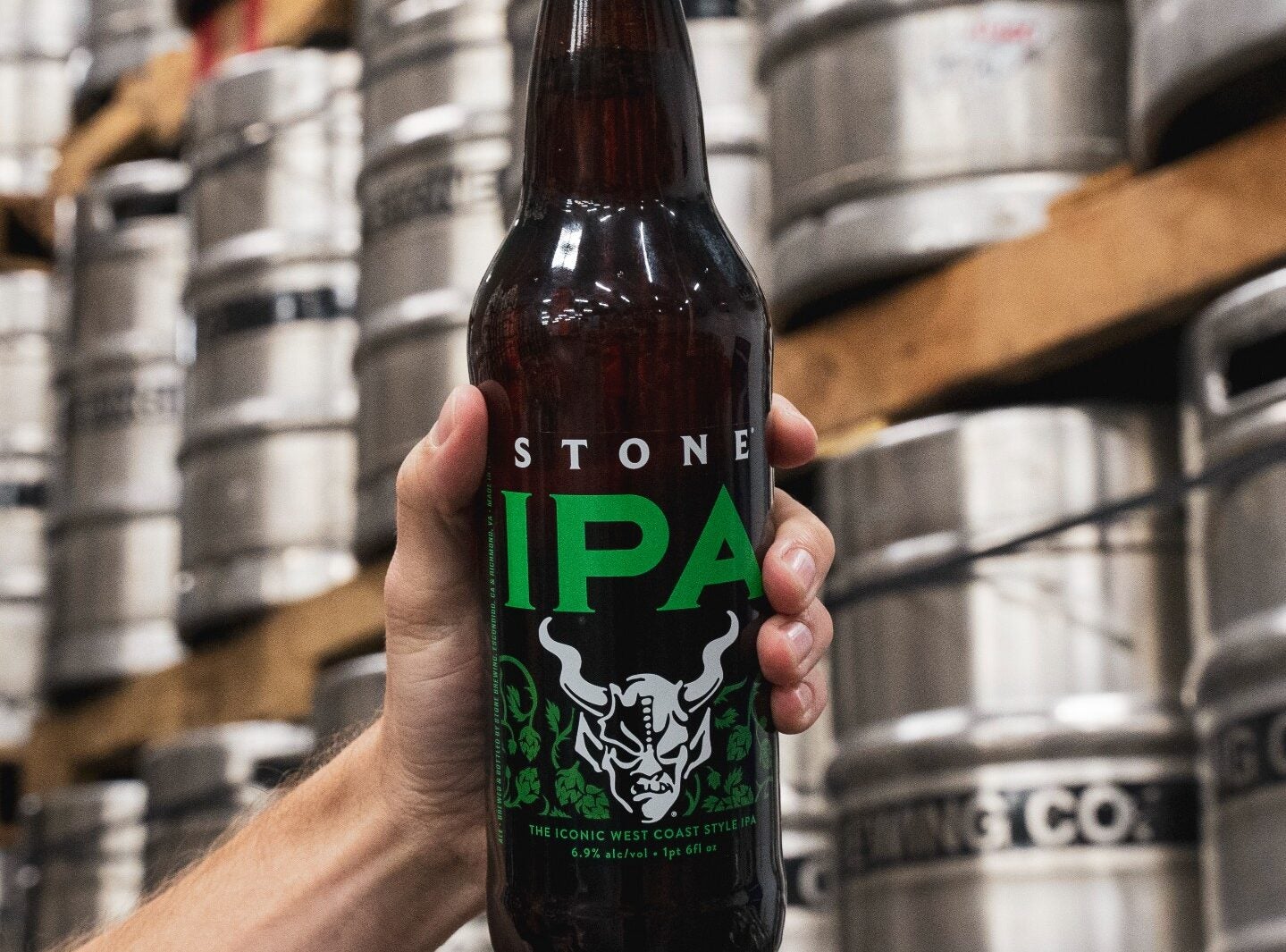The move by Sapporo Holdings to acquire US craft beer maker Stone Brewing surprised some industry watchers – but it is a deal that stands up to scrutiny.
Having faced numerous challenges even before the arrival of the pandemic, including the closing and sale of their once ballyhooed Berlin brewery, Stone Brewing was widely assumed to be available for purchase.
However, few if any industry watchers expected that suitor to be Sapporo, which already owned both Anchor Brewing in San Francisco, purchased in 2017, and (since 2006) Canada’s Sleeman Brewing.
In retrospect, however, the acquisition of Stone Brewing makes all sorts of sense for Sapporo. While the Japanese company had experienced some success with Anchor, even weathering the storm that erupted after they rebranded the iconic Steam Beer, speculation was the San Francisco operation simply wasn’t large enough for Sapporo’s North American ambitions. The US brewer ranking only 22nd on the Brewers Association’s list of craft breweries by production volume in 2016 (the final year it was included as a craft brewery)
On the other hand, Stone Brewing, which ranked ninth on the association’s 2021 list, boasts two large, state-of-the-art breweries, one on either coast, as well as a distribution network that reaches over forty countries.
Couple Stone’s bi-coastal capacity with Sleeman’s sizeable operation in southern Ontario and you have a triangulation effect that bodes well for Sapporo’s presence on the North American continent and goes a long way towards explaining why the deal happened. What it doesn’t answer, however, is why now?

US Tariffs are shifting - will you react or anticipate?
Don’t let policy changes catch you off guard. Stay proactive with real-time data and expert analysis.
By GlobalDataOn the timing front, several factors likely figure into the equation. To begin with, Stone Brewing in 2022 is a bargain relative to other US brewery purchases so far this century, even if one discounts the monumental disaster that was Constellation Brands’ purchase of Ballast Point for US$1bn in 2015.
New Belgium Brewing was a company that paralleled Stone Brewing quite closely when it was sold to another Japanese suitor, Kirin Holdings, in 2019. The company, with a pair of thoroughly modern breweries and national and international distribution, went for a reported $352.8m, more than double Stone Brewing’s estimated $165m sale price.
Meanwhile, the Canarchy brewery collective, which ranked just three positions ahead of Stone Brewing on the Brewers Association’s production list for 2021, sold to Monster Beverage for $330m earlier this year.
Of course, a bargain is only worth having if there is a positive side to the purchase. With the US beer market as crowded as it is, hard seltzers and spirits-based RTDs still playing havoc with the market share of craft brewers, and Mexican beer imports continuing their years-long tear, some will question the utility of entering the North American market in a bigger way right now.
However, that would be a valid concern if all the above was as true as it is perceived, but there is gathering evidence it is not.
To begin with, since the US is presently home to roughly one-third of the world’s breweries, it is easy to conclude market saturation is a definite issue. However, while saturation concerns may well exist in regions like the greater San Diego area and Chicagoland – areas densely populated with breweries – overall, the US boasts far fewer factories on a population basis than do many other nations, including France, Canada and New Zealand.
Secondly, while Mexican imports and spirits RTDs will likely continue to draw market share for some years to come, the hard seltzer juggernaut is now a thing of the past, with some in the industry predicting double-digit declines this year. Should that trend continue beyond 2022, as many predict, what market seltzers have swallowed over the last few years will quickly open back up to beer.
A third part of the case for Sapporo’s purchase may be found in the growing exasperation with special release beers, sometimes known as ‘hype beers’, which is beginning to transform the post-pandemic beer marketplace.
As interest in breweries that produce dozens or even hundreds of different brands per year begins to wane, consumers are almost certain to return in droves to reliable stand-by beers, perhaps including such iconic Stone Brewing beers as Arrogant Bastard or lighter, more quaffable fare like Sapporo’s flagship Premium Beer or slightly more niche Premium Black.
That final note also plays into the timing of this acquisition. With global shipping and the supply chain in disarray, and not expected to improve any time soon, the prospect of brewing Sapporo beers in three locations in North America rather than shipping cans and kegs from Japan must look very appealing to the brewery.
So, given all the above, what does the Stone Brewing sale suggest for future M&A activity in the US? Simply, I believe we can expect more, perhaps much more, but in deals involving increasingly smaller companies, be it craft breweries buying other craft breweries, as with Boston Beer Co.’s purchase of the Dogfish Head Brewery in 2019, or smaller international players snapping up foreign craft breweries, as we saw this month with Denmark’s Royal Unibrew buying Toronto, Canada’s Amsterdam Brewing.





